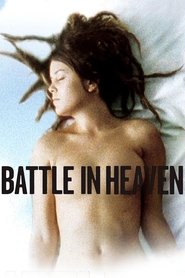What makes a successful provocation? Any good artistic incitement should provoke some strong negative emotion, but perhaps distinct from satire, an effective affront should also be somewhat legible its meaning, lest it never get higher than exploitation. It remains mostly opaque how this is a "daring critique of a country’s complicity in a man’s frustrated social situation" except through the Freudian raising and later drooping of the flag and the implication that the Castilian footballer cannot be a true representative of Estados Unidos Mexicanos. Perhaps if I was a Mexican national conservative this would hit home a bit more. It's certainly not true that "Reygadas is interested neither in our comfort nor easy entertainment". He is deeply invested in those conventional ideas of cinema as he denies them carefully throughout the film. (And after watching, too, when you read that Anapola Mushkadiz was a teenager when she made this.) Indeed, there is some interesting formalism in here, an attempt to find a new position on the meaningful vs. beautiful spectrum, a kind of ugly Terrence Malick.
Reygadas practices a form of cinema absentia, conveying dramatic incident and moral terror through unconventional means. For him, what lies beyond the frame is often more important than what lurks within, and his totemic obsession with the close-up positions Battle in Heaven as a force that demands serious reckoning.
— Ed Gonzalez (Slant Magazine)
The nonprofessional actors sit, stand and repose in the frame awkwardly, as if arranged like obedient children, like furniture, and recite most of the dialogue without the cascading rhythms of real speech, sometimes pausing before delivering a line. Mr. Reygadas has, rather hopefully, sought to explain this performance style by invoking Robert Bresson. The French director used nonprofessional actors, whom he called "models," to deliver nominally affectless, naturalistic performances that depend as much on our interest in other human beings as on the filmmaker's art and world view. Mr. Reygadas's admiration for Bresson is understandable if nowhere evident onscreen.
— Manohla Dargis (The New York Times)
Synopsis: Set in Mexico City, Carlos Reygadas's sexually explicit drama centers on a man in turmoil over his past actions. Chauffer Marcos feels compelled to reveal a dark secret to his boss's daughter, Ana, a wealthy woman who works as a prostitute just for the thrill of it. Marcos confesses that he and his wife committed a crime that ended in horrible tragedy. Haunted by his past, Marcos searches for redemption.

